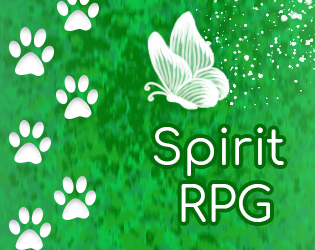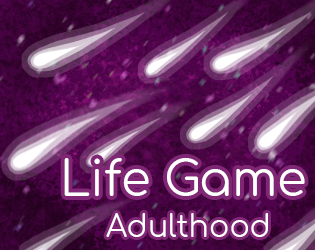One of our goals as Tea-Powered Games has always been to make our games accessible to as many people as possible. There are many different things to consider, but we tried to ask ourselves at every junction what we could do to make our game easier to play. We’d like to share some of the decisions we think helped Dialogue’s accessibility, and (because we can always do better) some which we wished we could have made work.
Game literacy
We wanted to make sure anyone could pick up the game and play, even if they didn’t have much, or any, experience with game terms or skills. To that end, there is no failure in Dialogue, no tests of dexterity or puzzles stopping the player from continuing the story.
We wanted players to learn more about characters and their preferences, since it’s a game about conversations, but we didn’t assume all players would do so equally. Using Dialogue’s main customization feature, Focuses1, we give players access to more information if they want it. Players can also replay scenes as many times as they want, and scenes are kept relatively short, so the player has a broad choice of exit points. There are as many tutorial messages as we found were helpful for players, and they can always be accessed again from the Help menu. The Main menu also has a short description of the last scene that was played, and some information on the upcoming scene, so players can jump back in no matter how long it’s been since they’ve played.
Subtitles and Voice acting
We always wanted voice acting for Dialogue – it enabled us to do conversations in real-time without having to make assumptions about player reading speeds. Equally, we have subtitles for all conversations, which we tried to make as legible and colour-contrasted as possible.
We still wanted players to have a bit of control over the pace of conversations. Using a Focus from early in the game, Consider, gives the player more time to read, think and make decisions. Another early Focus called Know-it-all lets them skip through text faster.
Colour-blind mode
In active conversations, we wanted to get across Lucille’s tone for each statement without unintended connotations. If we used words to label a statement as ‘aggressive’ or ‘direct’, for example, players might read too much into that word, or we would need too many words as descriptors. We decided to use colours to label the options instead, and let players make their own assumptions about what each colour means.
Since colours are an important part of the game, we created a colour-blind mode for those who may need it. These optional labels have distinct symbols the player can attach meaning to, as with the colours.

Some options with their corresponding colours, and symbols, in colour-blind mode.
We also used different colours for the subtitles of different characters, but the speaker is always under a spotlight, to make it easy to tell who is speaking.
Input methods
Whether a disability restricts players to keyboard controls only, or someone can’t enjoy a game unless they have a controller in their hands, the methods of input for a game can make a big difference to its accessibility. To this end, Dialogue can be played fully with either the mouse, a keyboard or controller, or a combination of the above.
Things we want to do better
Unfortunately, there are things we struggled to do, because we didn’t have the time, resources or expertise. These are some things we’re trying to do better in our future games, or would change in Dialogue if we had the opportunity.
- Translating the game. We would have loved to bring Dialogue to multiple languages, but it’s a hard one to localise. The script is long and the game is fully voice-acted, so as our first game, it would have been a challenge, even if we only translated the subtitles. For any future word-heavy games, we’ll be looking for ways to make it easier to localise our game from the get-go.
- Button reassigning. While Dialogue can be played on keyboard, controller or mouse, we would have wanted to let players reassign their keyboard or controller buttons, to make it accessible to even more people.
- Better representation within our characters. Dialogue has a relatively small cast, and a large portion of the characters are either Lucille’s family or (somewhat fantastical) characters from her novel. In future games, we want to make sure to have characters representing a broader range of people, both to make it more accessible to the people we’re representing, and to make more interesting games!
We hope these features will make Dialogue enjoyable to play for a broad audience, and we’re always happy to hear from our players if they have anything else they would like to see. Dialogue will be available online on November 8th, give it a go and see what you think!
1 Focuses are Dialogue’s simple equivalent of ‘equipment’ in Role-Playing Games, but often made to qualitatively change things. They are the main form of player customization for active conversations, and can be used to help make the game more accessible, or give players more strategic depth, among other uses.


1 comment
Palas - November 25, 2016
Hi! I’m Palas, a writer for Fuwanovel. We’ve recently reviewed Dialogue and, incidentally, accessibility was one of the points we highlighted the most – as a negative trait of the game, I’m afraid, and for reasons I’d be really happy to discuss with you if you’re available.
First, here’s the review:
http://fuwanovel.net/reviews/2016/11/24/dialogue-a-writers-story/
Of course, this is all about the “game literacy” part. The rest of the initiatives are most welcomed! And the voice acting was great. But the fundamental flaw in the thinking here, I believe, is not considering failure as content, frustration as part of the fun and responsibility towards the content you get as inversely proportional to accessibility.
I mean, there’s a difference between a game being easy and a game being always winnable. I’m not suggesting Dialogue should have had game overs, nothing of the sort – I just feel if you can always track back and play every scene again and not be really responsible for whatever results I get storywise, then what’s really mine in the game? Am I really playing the game if all I’m doing is systematically winning?
Losing – and having to deal with the loss – are powerful artifices to engane the player and making them feel like the journey they’re on is truly theirs. It makes relating to characters easier, makes you feel like no one else can take your playthrough away from you because hey, you failed there and then, but this made you see what only you could see – something that shouldn’t have happened, but you saw it.
At least, so I believe. I’d love to hear more from you about this topic, as it’s really interesting and seems to have oriented the way Dialogue was built.